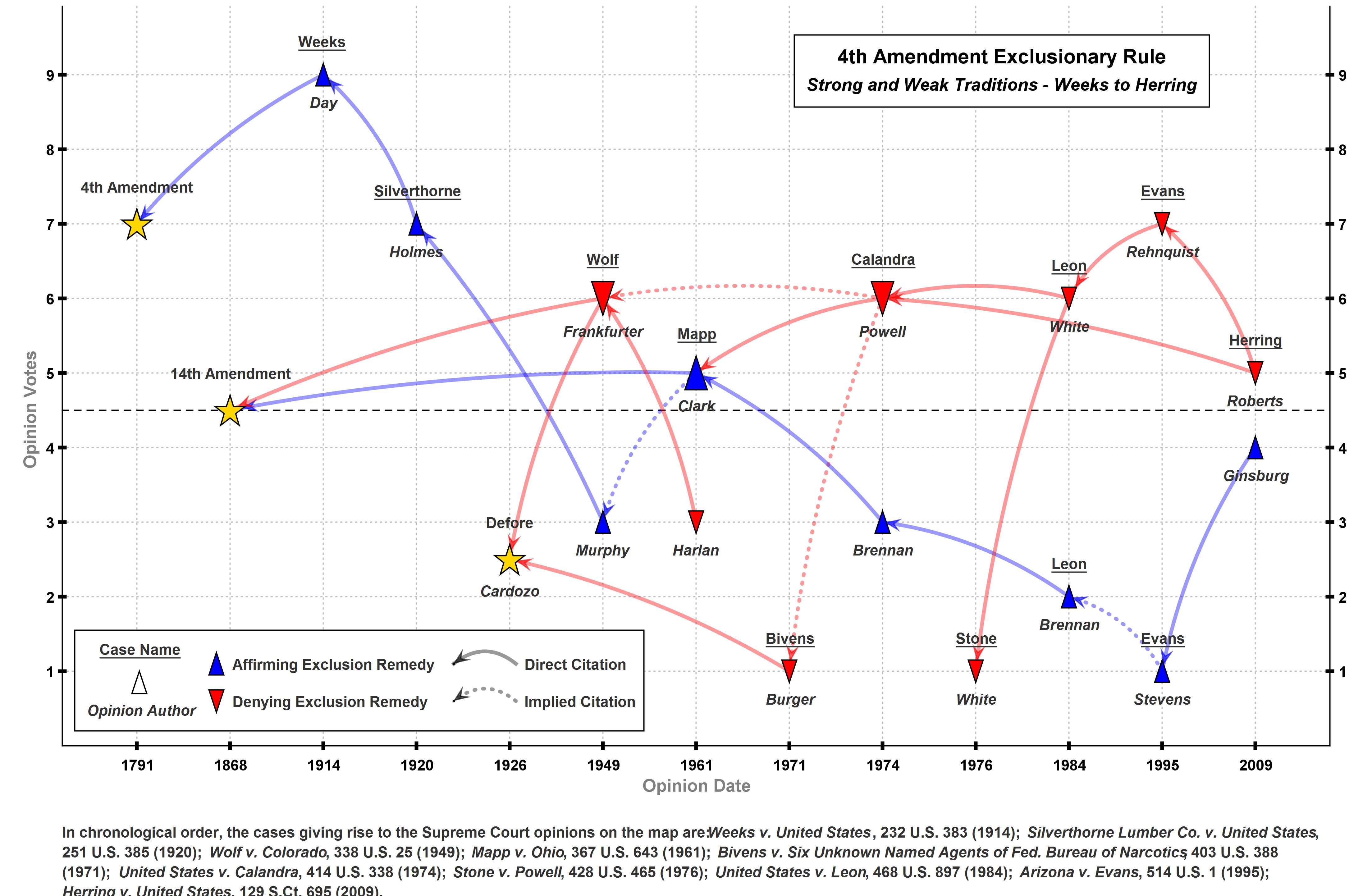
Check out the Fourth Amendment Doctrinal Atlas - maps and explanations in an intuitive new format!
This map shows the evolution of deadly force doctrine from Tennessee v. Garner (1985) to Mullenix v. Luna (2015). For explanation of this map, see this blog post.
This is a map of the complete citation network in Mullenix v. Luna, decided November 9, 2015. The case concerned deadly force used by police and qualified immunity. Both deadly force and qualified immunity cases are shown in the map. Click image to get full-sized version with links to the underlying opinions.
On June 3, 2013, the Court handed down its much anticipated Maryland v. King decision that upheld the constitutionality of Maryland's DNA Collection Act authorizing the collection and analysis of the DNA of persons arrested for, but not convicted of, certain serious crimes. This map shows the competing doctrinal arguments advanced by the King majority and dissent. For a Visual Guide to the opinion, please click here.

To open a full size version of this map in a separate window, click here.
In Herring v. United States, decided in 2009, a majority of the Supreme Court held that application of the Exclusionary Rule was not required given the particular violation of the Fourth Amendment. In dissent, Justice Ginsburg called for a return to "a more majestic conception of the Fourth Amendment." This map shows the history of the relevant Fourth Amendment debate. For academic discussion of this map, please click here.

To open a full-size version of this map in a separate window, click here.
| Doctrinal Area | Recent Case | Older Case |
| Traffic stop dog sniff | Rodriguez (2015) | Terry (1968) |
| Sex offender Monitoring | Grady (2015) | Camara (1967) |
| Warrant | Patel (2015) | See (1967) |
| Mistake | Heien (2014) | Brinegar (1949) |
| Deadly force | Mullenix (2015) | Garner (1985) |
| Qualified Immunity | Mullenix (2015) | Harlow (1982) |
| Arrestee DNA seizure | King (2013) | Rabinowitz (1950) |
| Exclusionary Rule | Herring (2009) | Weeks (1914) |